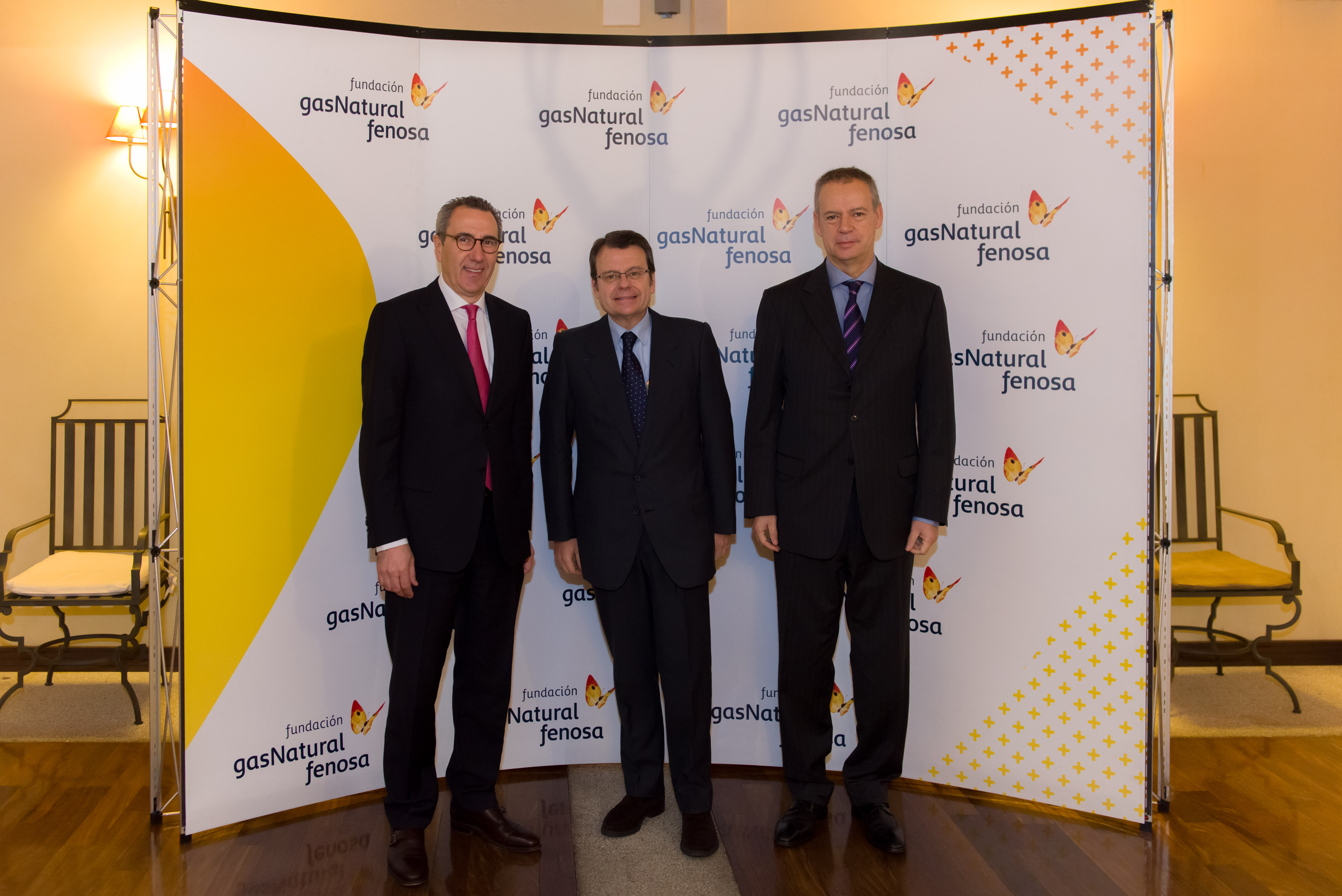The biogas produced from agro-farming waste in Galicia could meet the energy demand from 70,000 homes
At a seminar organised today in Santiago de Compostela by the Gas Natural Fenosa Foundation and the Economy and Industry Council of the Regional Government of Galicia, various experts highlighted the potential of biogas to reduce energy dependency in Spain.

Earlier today in Santiago de Compostela, the Director-General for Energy and Mines of the Regional Government of Galicia, Ángel Bernardo Tahoces, and the Managing Director of the Gas Natural Fenosa Foundation, Martí Solà, officially opened the seminar entitled Biogas in Galicia. The event highlighted the potential importance of biogas for reducing environmentally harmful emissions and reducing energy dependency in Spain.
During the course of the day, for which over 100 professional gathered, an explanation was provided on the process required to obtain biogas, its advantages and disadvantages, and the degree of implementation in the market of the various technologies. Practical cases were also presented on the harnessing of biogas by farming operations, wastewater treatment plants and industry in Galicia.
The Manager of the Alternative Energies Department at EnergyLab, Mario Iglesias, explained that the biogas produced from agro-farming waste in Galicia could potentially lead to the production of 143 million m3 of biogas, which could meet the energy demand from some 70,000 homes. Furthermore, it could meet 100% of the energy demand from farms.
Biogas Project Manager at GAS NATURAL FENOSA Engineering, María Piedad Martínez, presented the various technologies available to produce biomethane from biogas and solid biomass. María Piedad Martínez stressed that Spain is the seventh-largest European producer of biogas and that, according to data from the Energy Diversification and Saving Institute (IDAE), the country has an available energy potential of close to 20,000 GWh (1,700 KTOE), representing approximately 6.5% of Spain’s natural gas consumption.
The Manager of CARBIO, Jacobo Bouzada, explained the possibility of making biogas from industrial waste in a profitable manner and presented two success stories in Galicia: the first, a centralised biogas plant at a cannery; and, the second, the plant at a slaughterhouse for exclusively treating its waste.
The Energy Director of Grupo Hera, Miquel Torrente, presented the HERA Góngora Project involving GAS NATURAL FENOSA and SONDENA that will analyse the viability of using biogas from the Góngora landfill (Navarre) for injection into the natural gas network or as a biofuel for vehicles.
The researcher from the Thermochemical Conversion Group at the Institute of Energy Research in Catalonia (IREC), César Berrueco, described the various technology options for producing synthetic natural gas from the gasification of lignocellulosic biomass and highlighted the main challenges associated with this process, from both technological and economical perspectives.
In turn, the Area Manager from the Innovation and Technology Department of FCC Aqualia, SA, José R. Vázquez, presented the ABAD® system developed by his company and aimed at upgrading biogas to biomethane at waste water treatment plants, for both mobility and injection into the network. At present, FCC Aqualia already has a capacity to supply two vehicles with biomethane in Chiclana de la Frontera (Cádiz).
The Gas Natural Fenosa Foundation
The Gas Natural Fenosa Foundation, founded in 1992, works to promote information and training and raise social awareness of improvements in energy efficiency and technological innovation in the field of energy while respecting and protecting the environment. It promotes cultural activities through its Gas Museum that are aimed at preserving and publicising the sector's historical and cultural heritage. It also has a programme to support exports for small and medium-sized enterprises. Its international activities are carried out in Algeria, Argentina, Brazil, Colombia, Costa Rica, Mexico, Morocco, Italy, Moldova and South Africa.
Santiago de Compostela, 20 January 2016.
Share